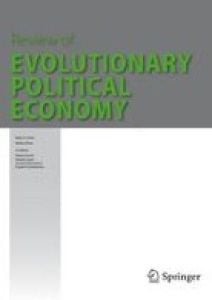

Derisking the low-carbon transition: investors’ reaction to climate policies, decarbonization and distributive effects
Review of Evolutionary Political Economy, 2022
The role of climate finance policies and instruments in sca ...
Author(s):
Summary:
Review of Evolutionary Political Economy, 2022
The role of climate finance policies and instruments in scaling up and derisking low-carbon investments has received growing research attention. However, financial actors’ reaction to climate finance initiatives, and their implications on decarbonization of the economy and on inequality, has not been assessed yet. Authors' article contributes to addressing this knowledge gap by analysing under which conditions governments' climate finance policies and investors’ climate risk adjustment can affect the success of the low-carbon transition and the ability to close the green investment gap.
They further develop the EIRIN Stock-Flow Consistent behavioural model with a financial market, an energy market and investors’ portfolio choice of financial contracts, for the European Union.
First, they study the macroeconomic impacts of government’s green subsidies that can be financed either by introducing an unanticipated carbon tax or by issuing green sovereign bonds.
Then, they assess how investors adjust firms’ risk assessment in reaction to the carbon tax introduction, and how this affects firms’ low-carbon investment decisions.
They find that both a carbon tax and green bonds financing can give rise to trade-offs in terms of decarbonization of the economy (absolute emission reductions), distributive effects and public debt sustainability. The channels of transmission differ and are policy and instrument specific. Green subsidies that are financed by green sovereign bonds issuance generate positive spillovers on GDP growth and less distributive effects than a carbon tax. Nevertheless, due to the relative decoupling of the economy, GDP growth impairs emission reduction efforts.
Finally, investors’ climate risk adjustment helps to smooth this trade-off, contributing to a full decoupling.
Keywords:
Climate finance, carbon tax, green bonds, decarbonization, climate risk adjustment, distributive effects, stock-flow consistent model
| Type : | Academic Publication |
|---|---|
| Date : | 17/01/2022 |
| Editor : | Springer |

